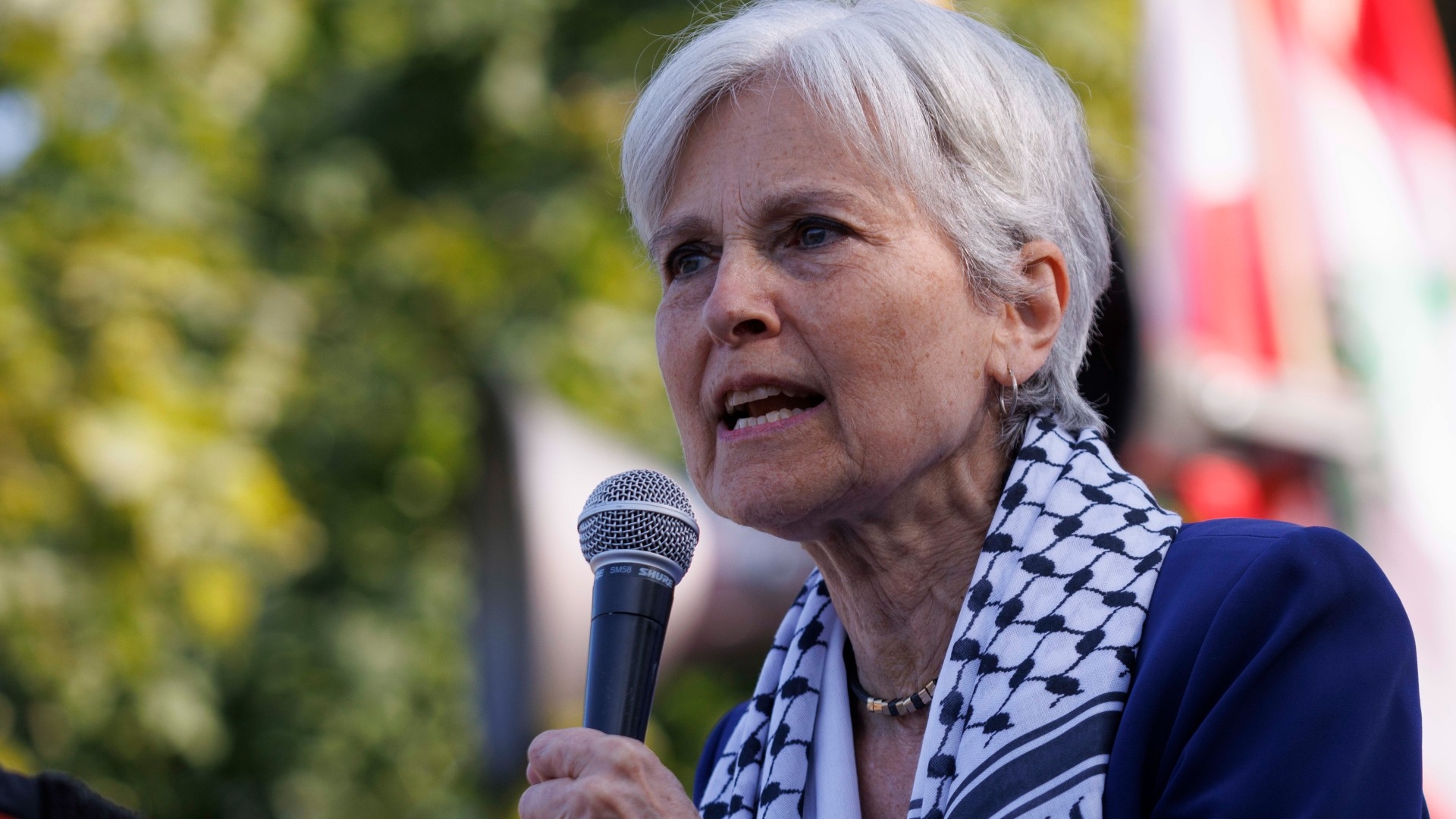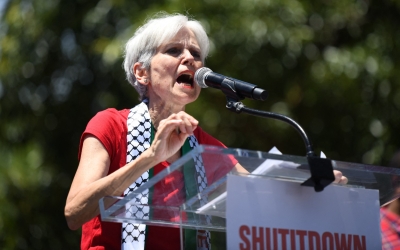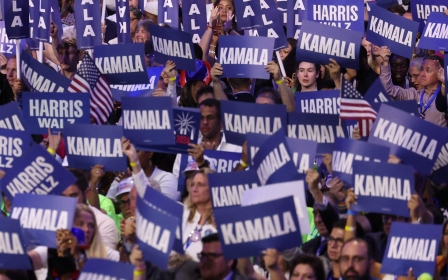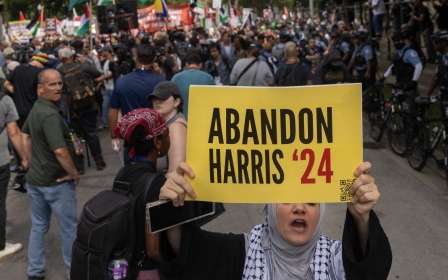US elections 2024: Jill Stein leads with Muslim-American voters in three swing states, survey shows

Green Party candidate Jill Stein leads Kamala Harris among Muslim-American voters in the three key swing states of Michigan, Arizona and Wisconsin, according to a new poll.
Overall, Vice President Kamala Harris and Jill Stein are the leading candidates in this year’s presidential election among Muslim-American voters, according to data released by the Council on American Islamic Relations (Cair), the nation’s leading voice on Muslim civil liberties.
In a survey conducted over two days in late August, 1,076 registered voters from around the country pitched in with their preferences – and despite the widespread anger directed toward the Biden administration and Democrats for bankrolling Israel’s year-long war on Gaza, 29.4 percent of respondents said they will still vote for the party.
But hot on Harris’ heels, 29.1 percent said they will vote for Stein, who has controversially said that what is happening in Gaza “makes any genocide pale by comparison” and has made ending the war a key pillar of her party platform.
In the 2016 election, Stein won one percent of the overall vote. She was seen as a “spoiler candidate” who divided the liberal bloc by shifting support away from Hillary Clinton.
New MEE newsletter: Jerusalem Dispatch
Sign up to get the latest insights and analysis on Israel-Palestine, alongside Turkey Unpacked and other MEE newsletters
A sizable number of survey respondents remain undecided about the upcoming November election, with 16.5 percent saying they do not yet know who they will vote for.
Republican candidate and former President Donald Trump, who has said he will reimpose the so-called “Muslim travel ban”, received 11.2 percent support.
Cair says the results have a margin of error of +/- 2.95 percentage points at the 95 percent confidence level - meaning that if the survey were conducted multiple times, Cair expects the same results within the margin of error the vast majority of the time.
“We are surprised to see that American Muslims are very much intent on voting, even though they don't seem very happy with all of the options before them,” Cair’s deputy national director Edward Ahmed Mitchell told Middle East Eye.
“American Muslims have had much reason to become jaded and cynical about politics in recent years and decades. But they, by and large, recognise that your vote is your constitutional right, and it's your way to make things change for the better, even some of the most horrific things that you can imagine, like a genocide.”
A marked shift
Just under nine percent of respondents to the survey said they do not plan on voting at all. Cair did not ask for the reasons behind the preferences.
In some swing states - those that are pivotal to the outcome of the election - Stein leads Harris by at least five percentage points or more, the survey shows. Those states are Arizona, Michigan, and Wisconsin.
Michigan boasts the largest Arab and Muslim-American community in the country, where 40 percent of respondents contacted by Cair said they plan to vote for Stein.
Wisconsin, however, had the highest share of support for Stein at 44 percent.
Harris retains a lead of some 20 percentage points in Georgia and Nevada, in addition to overall support among the youngest block of Muslim voters: those aged 18-29, which more or less mirrors national polling among the general electorate.

“This election is still up for grabs,” Mitchell told Middle East Eye. “The American Muslim community is not 100 percent decided we're going this way or that way. There still seems to be a great deal of flexibility and openness. If you look back to our polls from four years ago, the support for President Biden at the time was overwhelming, [but] now you see a much more diverse set of views.”
Khalil Jahshan, the Palestinian-American executive director of the Arab Center Washington DC, shares those sentiments.
“One has to distinguish between those of us who are looking at it from a Middle East perspective - and looking essentially to see what role does Middle East policy play in this - [and] the Muslim community [writ large] unless it's specifically asked,” Jahshan said.
“The Arab American community is significantly different because Middle East policy is the key factor.”
This may well be the first time that a US election is dramatically swayed by a foreign policy crisis, despite the insistence of some US lawmakers that only domestic issues can change results.
The unparalleled outpouring of support for the Palestinian cause around the country is a marked shift from the United States of 6 October 2023, Jahshan said.
“It's a protest vote,” he adds, regarding the swell of support for Stein. “She happens to be there at the right place, at the right time.”
Middle East Eye delivers independent and unrivalled coverage and analysis of the Middle East, North Africa and beyond. To learn more about republishing this content and the associated fees, please fill out this form. More about MEE can be found here.




